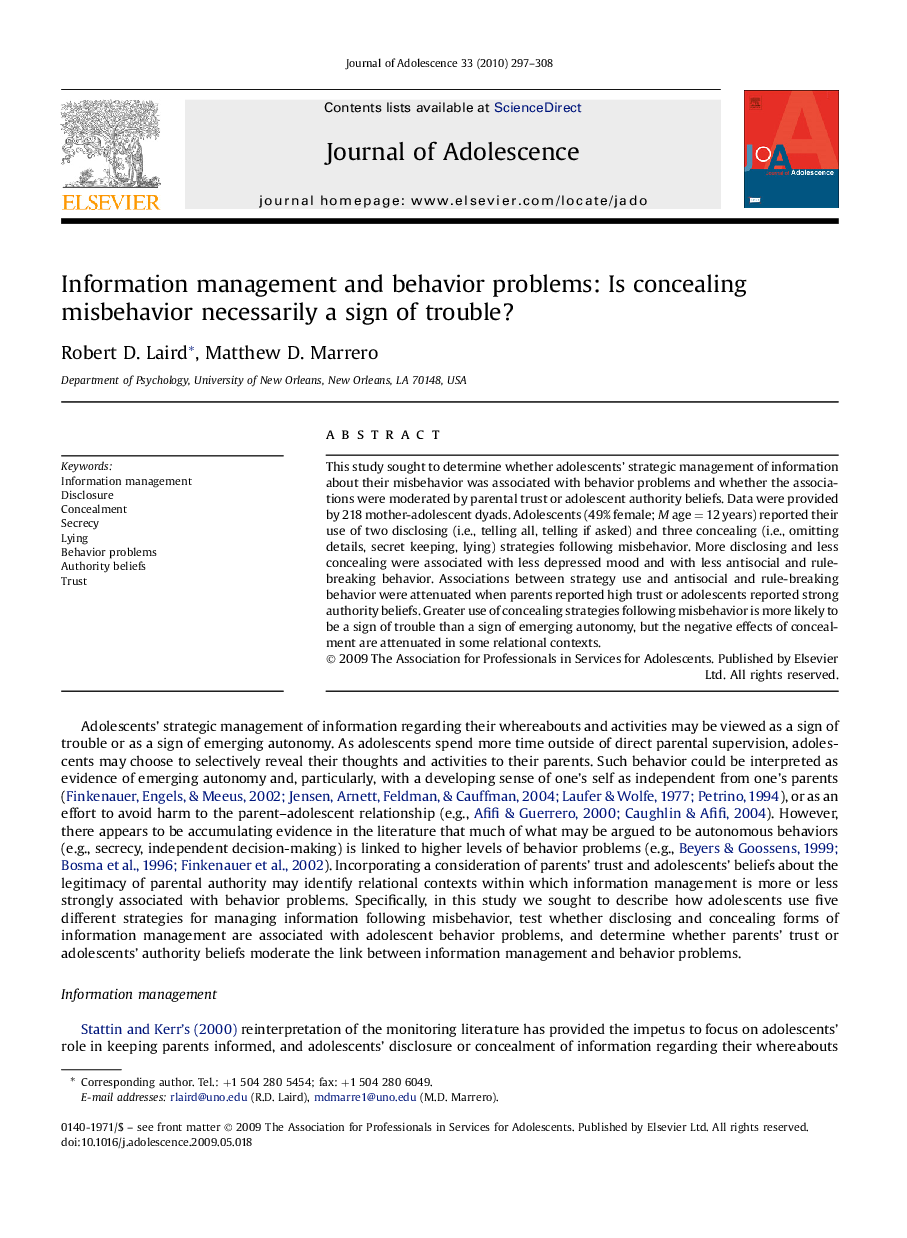| Article ID | Journal | Published Year | Pages | File Type |
|---|---|---|---|---|
| 881213 | Journal of Adolescence | 2010 | 12 Pages |
This study sought to determine whether adolescents' strategic management of information about their misbehavior was associated with behavior problems and whether the associations were moderated by parental trust or adolescent authority beliefs. Data were provided by 218 mother-adolescent dyads. Adolescents (49% female; M age = 12 years) reported their use of two disclosing (i.e., telling all, telling if asked) and three concealing (i.e., omitting details, secret keeping, lying) strategies following misbehavior. More disclosing and less concealing were associated with less depressed mood and with less antisocial and rule-breaking behavior. Associations between strategy use and antisocial and rule-breaking behavior were attenuated when parents reported high trust or adolescents reported strong authority beliefs. Greater use of concealing strategies following misbehavior is more likely to be a sign of trouble than a sign of emerging autonomy, but the negative effects of concealment are attenuated in some relational contexts.
